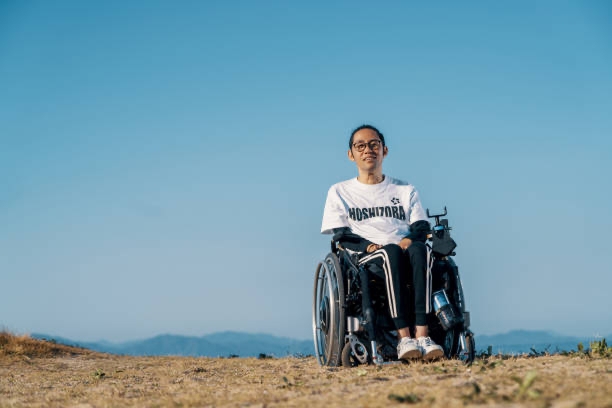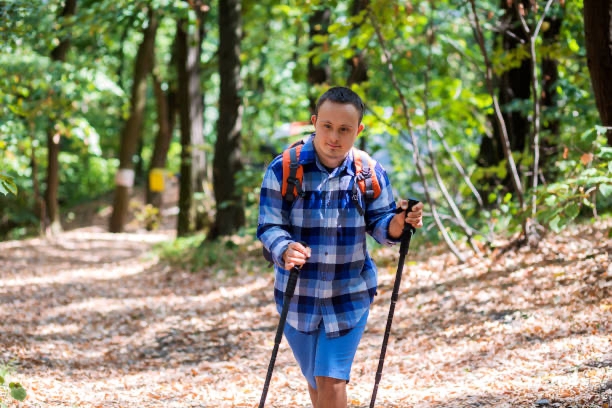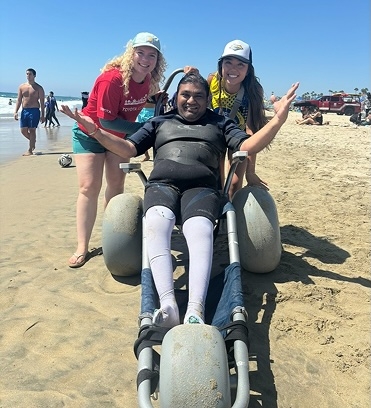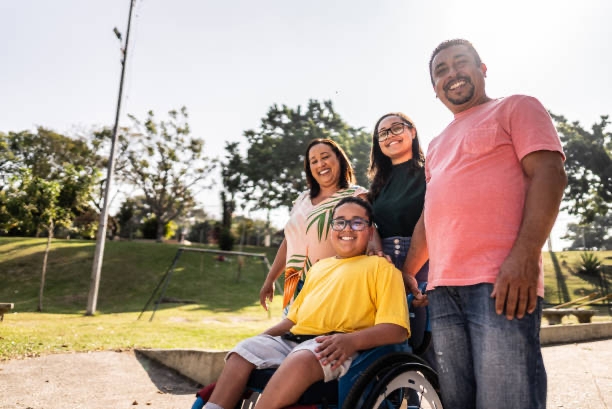AB 1225: Expanding Accessibility in California’s State Parks

AB 1225: Expanding Accessibility in California’s State Parks
California’s state parks and beaches are some of the most breathtaking natural landscapes in the world. Yet, for many individuals with disabilities, accessing and enjoying these spaces remains a challenge. AB 1225, introduced by Assemblymember Steve Bennett, seeks to change that by establishing an Accessibility Advisory Committee within the Department of Parks & Recreation.
Why AB 1225 Matters
For too long, individuals with disabilities have faced barriers to enjoying outdoor recreation. Many of California’s state parks were designed decades before modern accessibility standards like the Americans with Disabilities Act (ADA). While progress has been made, significant gaps remain.

AB 1225 will:
- Create an Accessibility Advisory Committee to provide expert recommendations on improving accessibility in state parks and beaches.
- Ensure individuals with disabilities have a voice in shaping accessibility policies and park improvements.
- Promote inclusivity in outdoor recreation, making nature truly accessible to all Californians.
A Step Toward Equity and Inclusion

Studies show that spending time in nature boosts mental and physical well-being. Yet, many individuals with disabilities face obstacles to fully experiencing these benefits. AB 1225 prioritizes equal access, allowing more people to enjoy sightseeing, hiking, picnicking, camping, and outdoor sports.
This bill also empowers the disability community to play an active role in preserving and protecting California’s natural spaces. People with disabilities have valuable perspectives on environmental justice and conservation, and AB 1225 ensures their insights are heard.
What Leaders Are Saying
Leaders in the Media
Steve Bennett joins Dani Anderson, Disability Access Manager for the County of Ventura, to speak on the benefits of having accessible state parks and beaches.
Voices from Our Community
Access For All
The Golden State is where the disability rights movement began. Yet, 35 years after the passage of the Americans with Disabilities Act (ADA), we’re still fighting to make our communities genuinely inclusive. That’s why I’m urging California to pass AB 1225—a bill that ensures people with disabilities have a voice in decisions about accessibility in our public spaces. It’s a simple but powerful idea: we are the experts of our own lives.
According to the World Health Organization, nearly everyone who lives long enough will experience some form of disability. In California, 11.7% of residents—millions of people—live with disabilities, most commonly related to mobility. Despite this, decisions about access to parks, beaches, trails, and other community spaces are still too often made without our input.
Two key concepts are frequently mentioned in this space: accessibility and accommodation. Accessibility is proactive—it means designing environments and experiences that include everyone from the start. Accommodation, by contrast, is reactive—an afterthought, trying to fix exclusion once it’s already happened. AB 1225 is about getting it right from the beginning. It’s about building with us, not for us.
This principle was central to the work of Ed Roberts, a trailblazer in the disability rights movement and the first wheelchair user to attend UC Berkeley. He didn’t just open doors—he tore down walls. Ed believed in access, independence, and dignity. He showed the world that when people with disabilities lead, entire systems can be transformed for the better. Yet decades later, we’re still fighting for the same seat at the table he demanded.
I surf, ski, kayak, and rock climb. I live a full and vibrant life because of access, community, and support. But even now, I continue to encounter barriers—right here, in the state where this movement began. When I can’t join my family and friends at public beaches or hiking trails—spaces funded by taxpayer dollars—it’s not just frustrating. It’s exclusion.

My name is Bhumit Shah, and I live with Cerebral Palsy. I use a power wheelchair for all mobility. Like so many others in the disability community, I’ve spent my life navigating systems that weren’t designed with us in mind—but I’ve also spent my life refusing to take “no” for an answer.
Today, I work as an Advocate at Disability Rights California, in the Advocacy and Community Engagement Unit. I hold a Master’s degree in Health Care Administration, and I use my voice and platform to speak not only for myself but for the countless others who deserve the same opportunities, access, and respect.
AB 1225 is a chance to move from symbolic support to systemic change. It represents equity, dignity, and real inclusion. Let’s honor the legacy of Ed Roberts—and ensure California once again leads the nation in disability rights.
For Future Generations
“I've been a nature and outdoors lover my entire life. After my spinal cord injury, it's been a challenge but I always enjoy finding opportunities to be outside as much as possible. I've seen some truly wonderful accessible facilities but know there's a lot of room for improvement to increase access for all.
I have 2 young kids and want to take them out into nature as much as I did and as much as possible. Having more accessible facilities would help do that and allow us to explore more of the most beautiful state in the country!”
Improved Infrastructure
“I have an invisible physical disability that limits the amount of uneven surfaces I can walk on. The lack of even roads in our parks greatly limits how many parks I can go to.
For example, just this past weekend I drove 1.5 hours to Griffith Park for a picnic only to find the "accessible" parking lot was up a hill and the picnic location was uphill from that. I had to walk on a cracked and loosely packed dirt road uphill on a hot day. It was exceedingly difficult to get there, so additional access will be so helpful.”
How You Can Help

Take Action
- Send a Letter of Support – Submit via the Advocate’s Portal by June 24, 2025. Click here to view a Sample Letter of Support (.doc)
- Spread the Word – Share on social media with #AccessForAll #AB1225 #InclusiveNature #EquitableOutdoors
- Contact Your Legislator – Let them know you support AB 1225- Find your Legislator Portal




